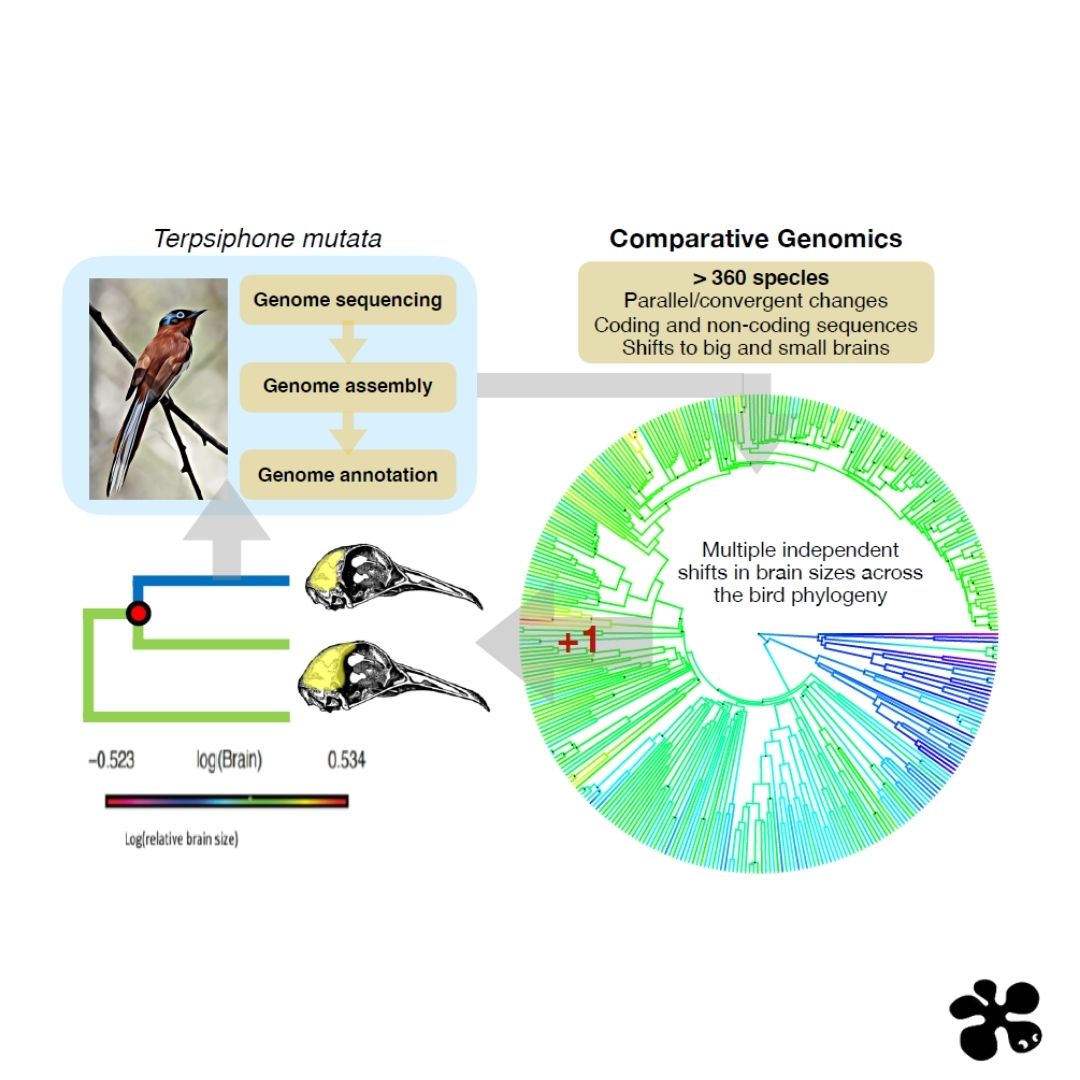The adaptive convergence of brain size in birds
Understanding the genetic factors that promote phenotypic convergence and distinguishing whether similar phenotypes are the result of convergent adaptation or not is key to determining how predictable evolution is. Many convergent traits are complex, allowing positive selection to act at different hierarchical levels. One such trait is the size of the brain, which is responsible for the acquisition, processing, and storage of information, directing the behaviour of animals in their interaction with the environment. There is increasing evidence that species with larger relative brain sizes have better capacities for innovation and learning.
This project initially focused on the superfamily Corvoidea, known for having the largest brain sizes among birds, but also considered the use of genomic data from different bird species.
An International Collaboration project
"Through this collaboration, we can expand our study in an unprecedented way: from analysing a single event of brain size change in a specific superfamily of birds (only three species, proposed as pilot project with the intention of subsequently analysing more brain size change events) to analyse more than 90% of bird families.” explains Dra. Guirao-Rico.
One of the most notable achievements of the project was the sequencing of the genome of the species Terpsiphone mutata, contributing a new case of independent change in brain size in a group that was under-represented in B10K. This success, together with the analysis of the large amount of data, is allowing to advance the genomic knowledge of the evolution of brain size and the adaptive convergence of complex traits associated with cognition.
Reshaping our understanding of evolution
This research opens up new horizons for the study of evolution, offering a unique insight into how organisms adapt to changes in their environment from a genomic point of view. Dr. Guirao-Rico shares: "This research is very important because it allows us to know more precisely to what extent evolution is repeatable and predictable and if there are differences in repeatability at different evolutionary time scales." The results obtained in this project could have significant implications for evolutionary biology and in our knowledge of brain development in birds and other taxonomic groups. In addition, it allows long-term knowledge of the adaptive potential and predict the responses of species to environmental changes. This knowledge will therefore have important future practical implications in the conservation of biodiversity, food or health, being particularly relevant in the current climate crisis context.
The impetus of the PR-IRBio-2022 Grant in the scientific career of young researchers
The IRBio Research Promotion Grant (PR-IRBio Grant) for young researchers this year 2022 was granted to the pilot project for the study on adaptive convergence in the brain size of birds By Dr. Sara Guirao "This is an opportunity to be the principal investigator of a project that allows you to demonstrate your independence and leadership ability".
